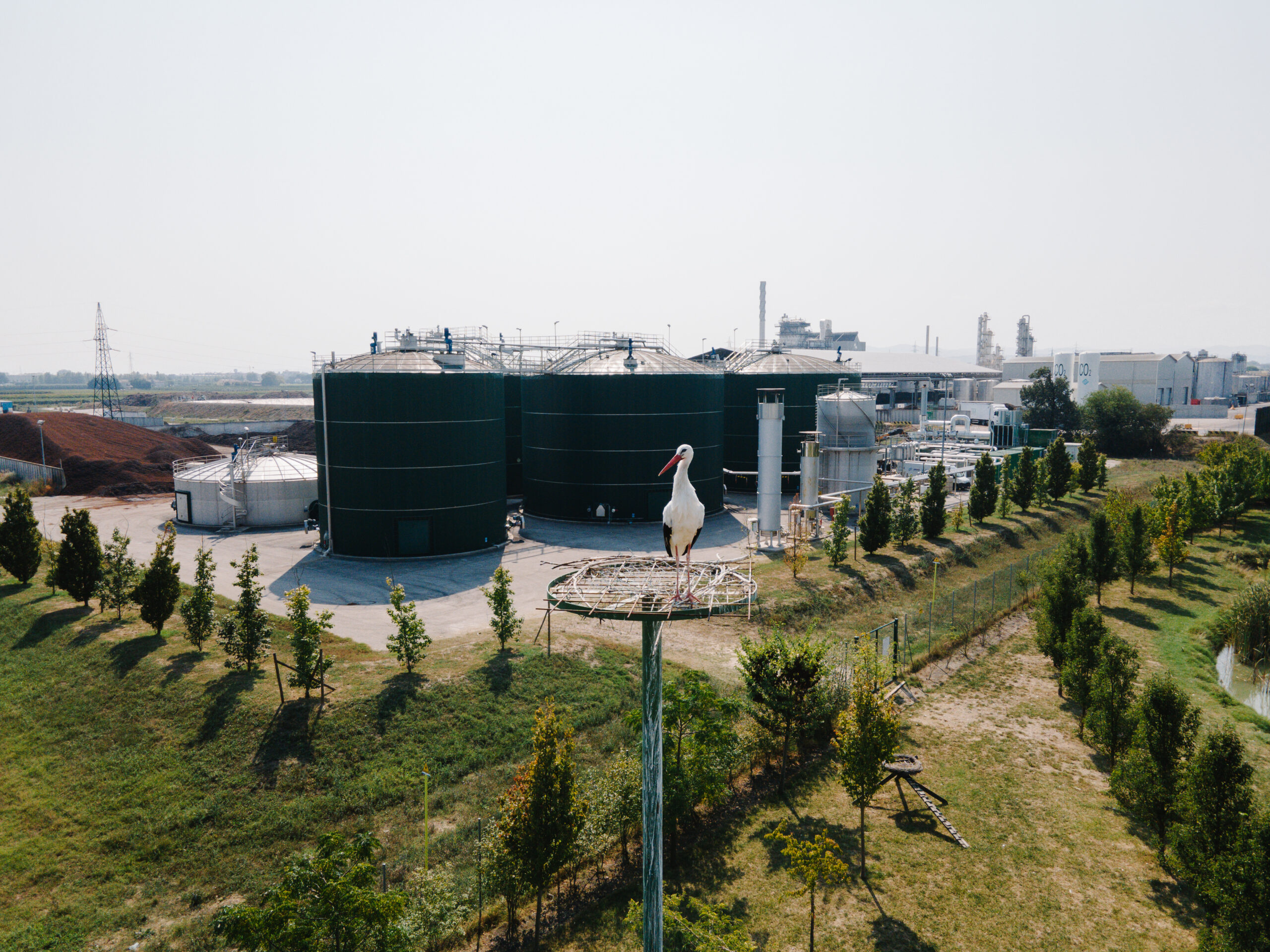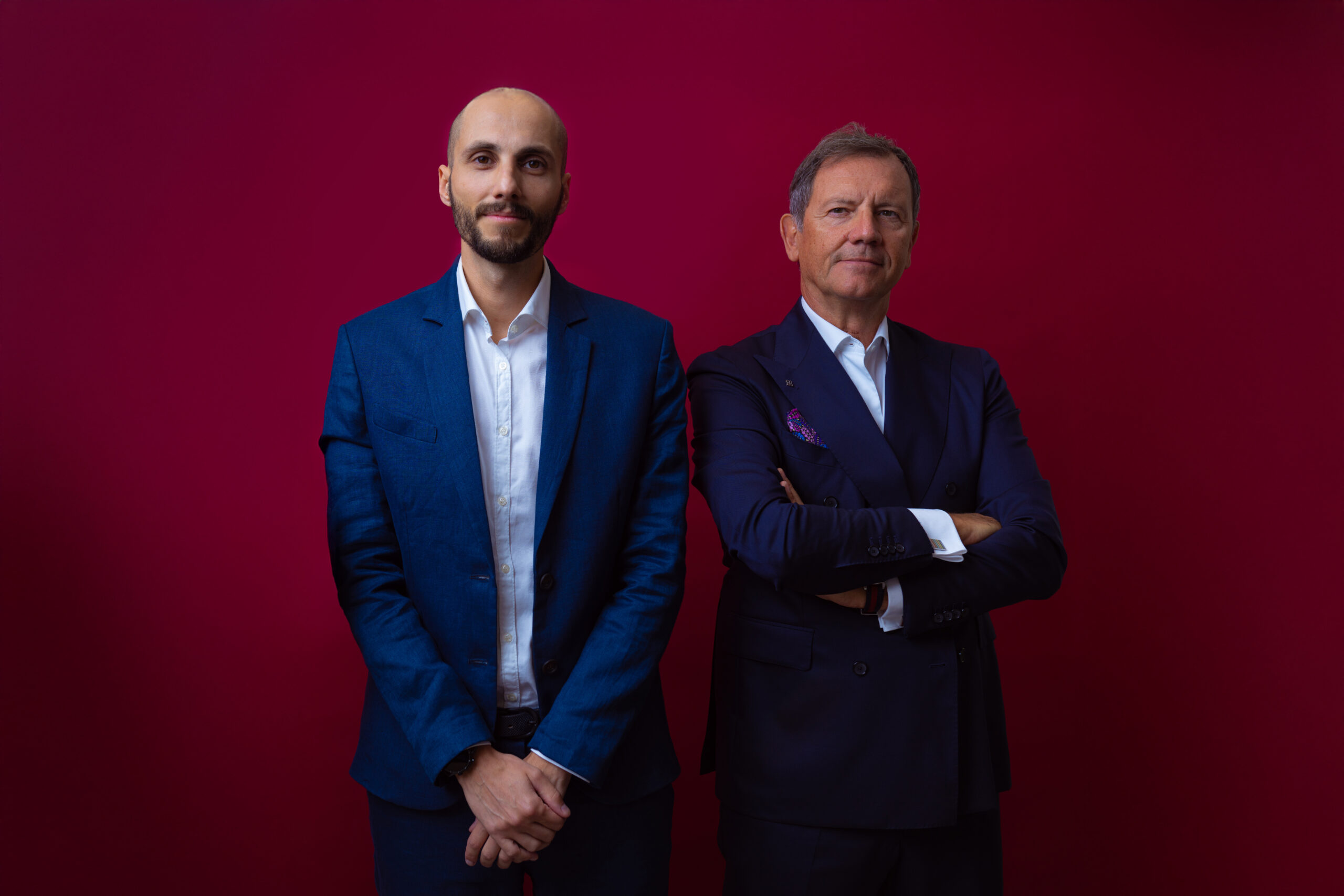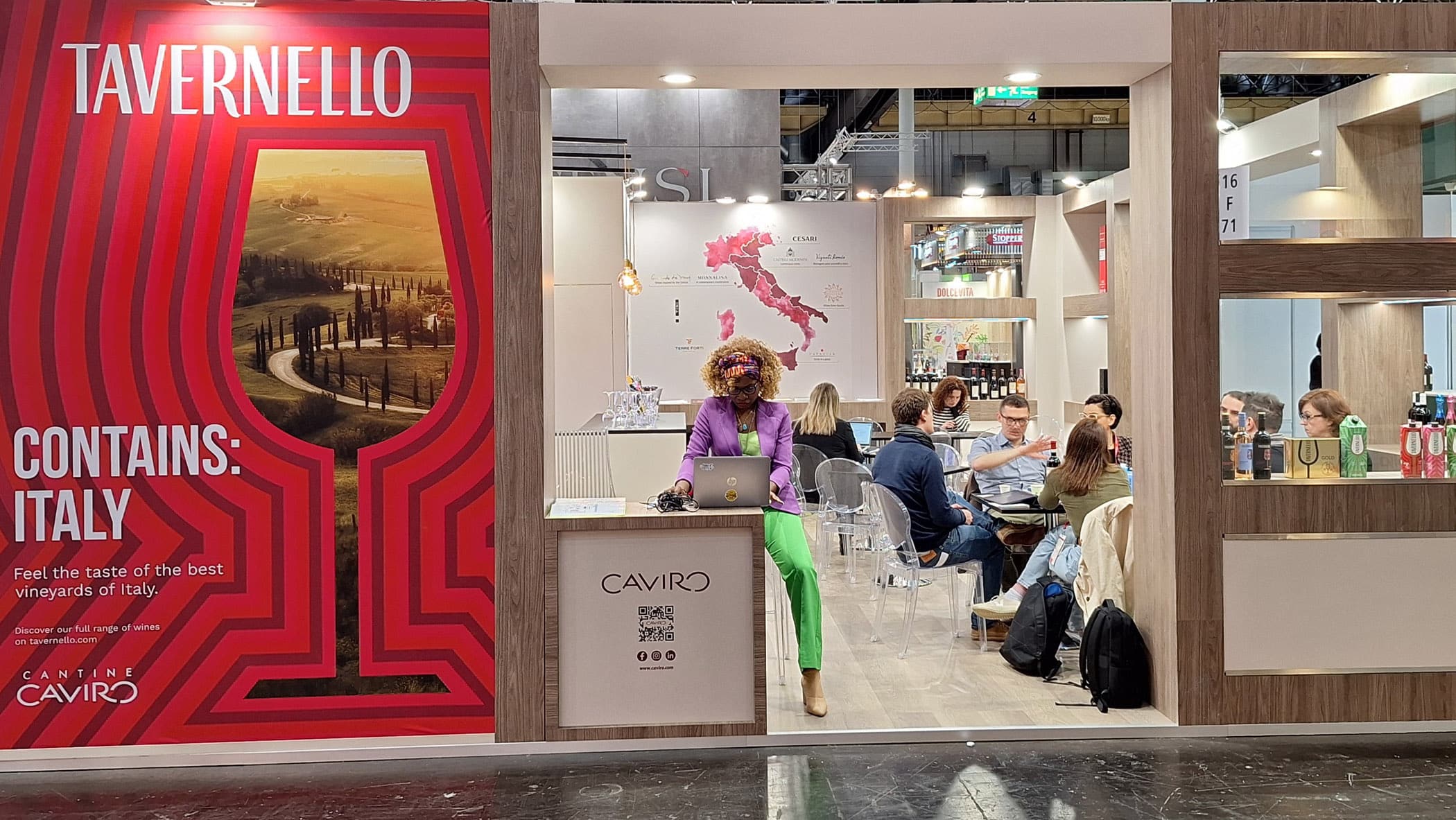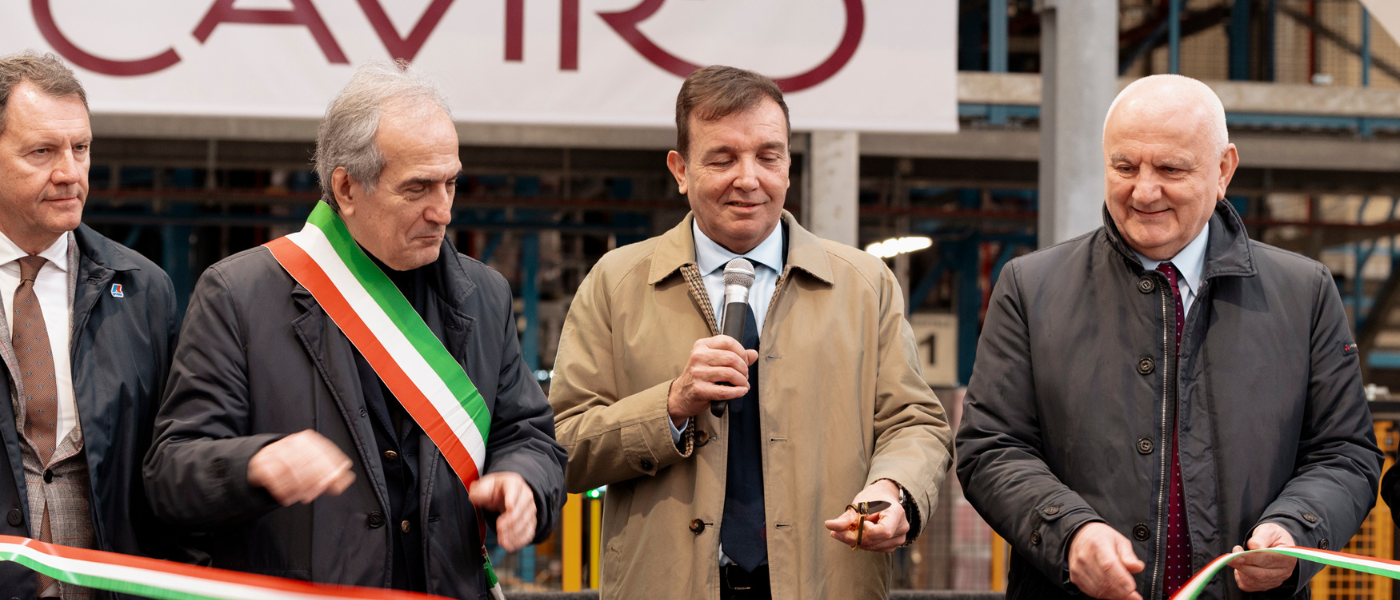Faenza, 09 November 2023 – Caviro Group, an international example of circular economy best practice, stands out for having revolutionized the way of creating synergies in the world of wine, and, with the company Caviro Extra, for having developed the concepts of sustainability and innovation, and therefore enhancing and transforming into resources what had commonly been considered waste.
On the occasion of ECOMONDO, the reference European event for the ecological transition, Caviro presented the next step on its path of sustainable development, which, for years, has led the Group to achieve important goals, including the production and public release of green energy, the introduction of circularity from vineyard to vineyard, and important water savings, to name just a few.
Caviro is already hard at work carrying out its carbon assessment on all of the Group’s sites, with a view to calculating the carbon footprint of each and of bringing in concrete decarbonisation strategies.
“Implementing the carbon assessment,” explains Silvia Buzzi, Environment, Health and Safety Executive & Sustainability Manager of Caviro Extra, “means determining one’s carbon footprint on the planet, that is, which and how many types of climate-altering emissions are directly or indirectly related to the complex reality of Caviro. The Caviro Group, in the Italian context, once again is demonstrating foresight and commitment by deciding to go ahead autonomously and voluntarily with the grounding of this project.”
The carbon assessment of the Faenza site, which hosts the subsidiaries CAVIRO EXTRA and ENOMONDO, has already been concluded on the basis of data relating to the fiscal year 2021-22. The emissions assessment was carried out in collaboration with CLIMATEPARTNER, which calculates CO2 emissions and supports companies in putting into practice climate actions and emissions compensation strategies through climate protection projects.
The assessment, based on the Greenhouse Gas Protocol, classifies emissions into 3 scopes. Scope 1 emissions are direct emissions, that is, generated by the company, which in the case of Caviro are significantly low. Scope 2 emissions are indirect emissions, generated by energy purchased and consumed, which at the Faenza site, where only self-produced green energy is used, are zero. Scope 3 emissions are indirect emissions generated by the company’s value chain, including from such sources as staff travelling to and from work and home, business trips, waste disposals, in-bound and out-bound transport, packaging, and so on.
The assessment led to the calculation of 22,981 tonnes of CO2 for Scope 1 and 2 emissions, a decidedly low figure considering the business volumes of Extra and Enomondo, demonstrating how the circular economy of the Faenza site aims for the maximum valorization of waste from agrifood supply chains, and for the maximum reduction of environmental impacts.
“This calculation is the first step in defining corporate decarbonisation strategies that will allow us to aim to be a carbon compensated company. Making this commitment was important, and allowed us to develop a new and precious skill set in view of the future challenges that companies will be called upon to face,” concludes Environmental Engineer Buzzi.
The assessment is currently underway regarding the data for the fiscal year 2022-23, closed on 31st August, across all of the Group’s sites: Forlì, Savignano sul Panaro (MO), and Fumane (VR), where wine processing and bottling takes place.
Once the carbon footprint has been determined, emissions can be offset through the purchase of carbon credits that finance certified environmental protection projects, chosen in line with the 9 Sustainable Development Goals of the UN 2030 Agenda, which Caviro uses as a springboard for concrete actions.
Furthermore, the carbon assessment will make possible to implement decarbonisation projects throughout the supply chain, including for Scope 3 emissions, with important positive commercial implications for products, positioning the purchase and consumption of carbon offset products as a source of pride for both the companies producing them and end-consumers.
The fifth edition of the Sustainability Report, set to be published next spring, will be dedicated to the results of the Group’s carbon assessment and will detail its decarbonisation strategies and the financing of certified projects in disadvantaged countries that most stand to suffer the climatic impacts of industrialized countries.



